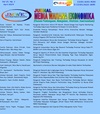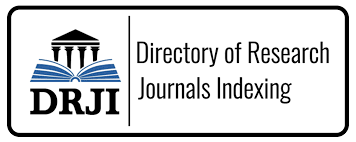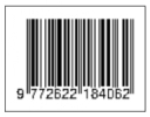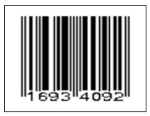Pengaruh Kualitas Pelayanan Dan Harga Transportasi Berbasis Online Terhadap Kepuasan Pelanggan (Studi Kasus Pada Mahasiswa Universitas PGRI Palembang)
DOI:
https://doi.org/10.31851/jmwe.v21i1.15081Abstract
ABSTRAK
Populasi penelitian ini adalah mahasiswa Universitas PGRI Palembang yang pernah menggunakan jasa transportasi online minimal 2 (dua) kali dan diambil sampel sebanyak 100 mahasiswa. Penelitian ini menggunakan metode kuantitatif analisis kuantitatif meliputi uji validitas dan rehabilitas, uji asumsi klasik, analisis regresi linier berganda. Pengujian Hipotesis melalui uji t dan uji f serta analisis koefisien determinasi (R2). Data-data yang telah memenuhi uji validitas uji reabilitas dan uji asumsi klasik diolah sehingga menghasilkan permasalahan regresi sebagai berikut: Y= 9,720 + 0,131 X1 + 0,322 X2. Pengujian hipotesis menggunakan uji t menunjukkan bahwa kedua variabel independen yang diteliti terbukti secara signifikan berpengaruh secara parsial terhadap variabel dependen kepuasan pelanggan. Kemudian melalui uji F dapat diketahui bahwa kedua variabel independen yang diteliti Secara simultan berpengaruh terhadap variabel dependen kepuasan pelanggan. Angka R Square sebesar 0,524 menunjukkan bahwa 52,4% artinya naik turunnya kepuasan pelanggan itu dipengaruhi oleh kualitas pelayanan dan harga sebesar 52,4% dan sisanya 47,6% dipengaruhi oleh faktor-faktor lainnya yang tidak masuk dalam penelitian ini. Dari Hasil pengujian hipotesis (uji t) variabel kualitas pelayanan (X1) diperoleh nilai signifikan 0,003 dan variabel harga (X2) diperoleh nilai signifikan 0,000 maka dapat disimpulkan bahwa secara parsial ada pengaruh signifikan terhadap variabel kualitas pelayanan (Y). Berdasarkan Hasil pengujian hipotesis ( uji F) secara simultan diperoleh nilai signifikannya sebesar 0,000 maka dapat disimpulkan secara simultan variabel kualitas pelayanan dan harga secara bersama-sama berpengaruh signifikan terhadap kepuasan pelanggan transportasi online pada mahasiswa Universitas PGRI Palembang.
Kata kunci: Kualitas Pelayanan, Harga, Dan Kepuasan Pelanggan Transportasi Online
ABSTRACT
The population of this research is PGRI Palembang University students who have used online transportation services at least 2 (two) times and a sample of 100 students was taken. This study uses quantitative methods of quantitative analysis including validity and rehabilitation tests, classical assumption tests, multiple linear regression analysis. Hypothesis testing through t test and f test and analysis of the coefficient of determination (R2). The data that has met the validity test of the reliability test and the classical assumption test are processed to produce the following regression problems: Y= 9.720 + 0.131 X1 + 0.322 X2. Hypothesis testing using the t-test showed that the two independent variables studied were proven to have a significant partial effect on the dependent variable of customer satisfaction. Then through the F test, it can be seen that the two independent variables studied simultaneously affect the dependent variable of customer satisfaction. The R Square figure of 0.524 indicates that 52.4% means that the ups and downs of customer satisfaction are influenced by the quality of service and prices by 52.4% and the remaining 47.6% is influenced by other factors not included in this study. From the results of hypothesis testing (t test) the service quality variable (X1) obtained a significant value of 0.003 and the price variable (X2) obtained a significant value of 0.000, it can be concluded that partially there is a significant effect on the service quality variable (Y). Based on the results of hypothesis testing (F test) simultaneously obtained a significant value of 0.000, it can be concluded simultaneously that the variables of service quality and price together have a significant effect on online transportation customer satisfaction at PGRI Palembang University students.
Keywords: Service Quality, Price, And Online Transportation Customer Satisfaction
References
Algifari. (2016). Mengukur Kualitas Layanan. Yogyakarta: BPFE-YOGYAKARTA.
Felita Sasongko dan Hartono Subagio. (2013). Manajemen Pemasaran Internasional Jilid II Salemba Empat. Jurnal Manajemen Pemasaran PETRA,I(1), 186.
Gunawan, H. (2020) Pengantar Ttransportasi dan Logistik. Jakarta: PT. RAJA GRAFINDO PERSADA.
Kotler dan Gary Armstrong. (2016). Dasa-dasar pemasaran jilid 1, Edisi Kesembilan. Jakarta: Erlangga.
Lupiyoadi, R. ( 2013). Manajemen pemasaran jasa berbasis kompetensi. Edisi 3. Jakarta: Salemba Empat.
Damayanti, R. (2018). Model Faktor-Faktor Penentu Melalui Keputusan Konsumen Menggunakan Jasa Angkutan Ojek Online Terhadap Kepuasan Masyarakat Kota Palembang. Jurnal Manajemen dan Bisnis Sriwijaya, 16 (2), 64-76. https://ejournal.unsri.ac.id/index.php/jmbs/article/view/6938
Priyatno, S. (2018). SPSS Panduan oleh Data Bagi Mahasiswa dan Umum. Yogyakarta: ANDI (Anggota IKAPI).
Limakrisna, N, dan Purba, T.P. (2017). Manajemen Pemasaran Teori dan Aplikasi Dalam Bisnis di Indonesia. Jakarta: Mitra Wacana Media.
Sunyoto, D. (2019). Dasar-Dasar Manajemen Pemasaran. Yogyakarta: CAPS
Sugiyono. (2021). Metode Penelitian Kuantitatif Kualitatif dan R&D. Bandung: ALFABETA.
Tjiptono, Fandy. (2014). Pemasaran jasa prinsip, dan penelitian, Andi Offset, Yogyakarta.
Worodiyanti, N. W. M. (2016). Pengaruh Kualitas Produksi, Harga, dan Kualitas Layanan terhadap Kepuasan Konsumen. E-Journal, Vol. 05 No. 01, pp. 23-28.
Downloads
Published
Issue
Section
License
Copyright (c) 2024 Jurnal Media Wahana Ekonomika

This work is licensed under a Creative Commons Attribution-NonCommercial 4.0 International License.
The copyright of the received article shall be assigned to the publisher of the journal licensed under a Creative Commons Attribution-NonCommercial 4.0 International License in line with the license, authors and any users (readers and other researchers) are allowed to share and adapt the material only for non-commercial purposes. In addition, the material must be given appropriate credit, provided with a link to the license, and indicated if changes were made. If authors remix, transform or build upon the material, authors must distribute their contributions under the same license as the original.























